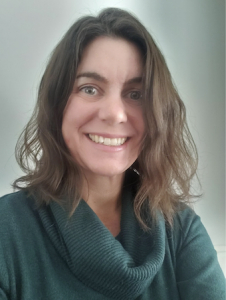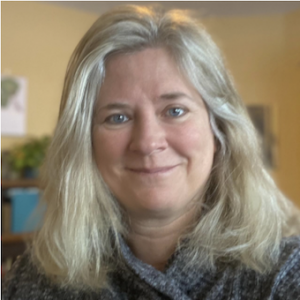Are you looking for some high leverage teaming and collaboration practices that can be used to support all adults in Early Childhood classroom settings to use evidence-based strategies to achieve better outcomes for children and families? Do you need to expand your adult learning strategies toolbox? When all professionals in early childhood classrooms embed evidence-based practices into play, interactions, instruction and interventions, child outcomes are improved. Adults who provide instruction to children require active and ongoing support to implement evidence-based practices to fidelity. Research and experience indicates that early childhood professionals likely received little, if any, training related to adult learning principles and collaborative strategies.
This session will provide participants with knowledge, collaborative strategies and tools that will build on their current skills and expand their confidence and capacity in engaging in reciprocal partnerships with other adults to facilitate responsive adult-child interactions, model naturalistic interventions and demonstrate evidence based instructional practices with a heavy emphasis on coaching other adults to employ evidence based practices across naturally occurring routines and activities. Participants will learn strategies to build the capacity in adults so that all children receive individualized support and instruction every day, throughout the day.
Topics that will be discussed include adult learning strategies, methods for sharing knowledge and expertise across Early Childhood professionals, coaching of other professionals, strategies and tools for supporting adult learners, and other collaborative practices.Participants will engage in learning activities grounded in adult learning principles to apply the information to their work.
Additional Information
Participants are welcome to attend as an individual, in a partnership, or as a team. The focus of this session is for professionals working in an early childhood classroom setting; specifically preschool level (vs. early intervention providers). This session will build upon and unpack some of the strategies introduced in the 2021 session; Two Heads Are Better Than One; however, participation in that session is not a requirement to register for this session.
Session objectives
In this session, participants will:
- Understand how adult learning strategies apply to the work of Early Childhood Professionals in a variety of roles and use those strategies consistently across early childhood settings.
- Understand and apply strategies for interacting and sharing knowledge and expertise with other professionals.
- Use coaching and other collaborative strategies that are grounded in the characteristics of adult learners to ensure access, participation and engagement in inclusive settings.
- Apply coaching and other collaborative strategies, skills and processes when planning and implementing interventions, interactions, and instruction.
MN CoE innovations supported
Pyramid Model, Classroom Engagement Model
Intended audience
Any professional working in an Early Childhood setting including Early Childhood Educators, ECSE Practitioners, Related Service Providers, Low Incidence Providers, Leaders, and Professional Development TAs/Providers
Intended skill level
Beginner, Intermediate, Advanced, Green to Seasoned
Each session requires a minimum of 10 attendees to be held. If there are fewer than 10 registered for a specific session, you will be contacted and asked to select another session.
Instructors
Elizabeth Peters Rust, MA
 Elizabeth Peters Rust, Betsy, has worked in the Early Childhood Special Education field for 19 years. She worked as a Speech Language Pathologist, serving children birth-graduation and their families, in a public school district in North East MN. Betsy has been a regional ECSE Professional Development Facilitator for MN Centers of Excellence for Young Children With Disabilities since 2016. She has been an Achieve Master Trainer since 2015.
Elizabeth Peters Rust, Betsy, has worked in the Early Childhood Special Education field for 19 years. She worked as a Speech Language Pathologist, serving children birth-graduation and their families, in a public school district in North East MN. Betsy has been a regional ECSE Professional Development Facilitator for MN Centers of Excellence for Young Children With Disabilities since 2016. She has been an Achieve Master Trainer since 2015.
Betsy earned her undergraduate degree and her M.A in Communication Sciences and Disorders from the University of Minnesota Duluth. She holds an ASHA Certificate of Clinical Competence and a Minnesota Educator License. Betsy is certified in Cognitive Coaching, certified in the Fidelity in Practice:Early Intervention via Family Infant and Preschool Program, and has extensive training in Practice Based Coaching. She supports many EC/ECSE program coaches and provides coaching to other professionals.
Betsy’s professional passions include Early Childhood, Coaching, implementation science, adult learning, and language development. She serves as a “member at large” with the MN Division of Early Childhood and as an Early Childhood Personnel Center (ECPC)/ Division of Early Childhood (DEC) Professional Development Cohort Leadership Team member.
Jodi Altringer, MS

Jodi Altringer is the Early Childhood Special Education Professional Development Facilitator for Region 7 with the Minnesota Centers of Excellence for Young Children with Disabilities.
Jodi began her career in the Buffalo-Hanover-Montrose School District, working as an Early Childhood Special Education teacher for 21 years, before serving as an instructional coach for one year. During this time as an instructional coach, Jodi earned her Cognitive Coaching certification and gained valuable experience in coaching and providing support to professional learning communities. Jodi is certified in the Fidelity in Practice:Early Intervention via Family Infant and Preschool Program, and has extensive training in Practice Based Coaching. She continues to use and refine her coaching skills as she supports programs and ECSE leaders across Region 7.
In 2013, Jodi joined the board for the Minnesota Division for Early Childhood of the Council for Exceptional Children, serving as a member at large. In 2021, Jodi had the privilege of participating in the Governor’s Education Roundtable, a group of 22 professionals in teaching and education policy. This group of professionals, along with other stakeholder groups, contributed guidance leading to the Due North Education Plan.
Jodi has an undergraduate degree in Special Education from St. Cloud State University. She has a Master of Science degree in Child and Family Studies from St. Cloud State University. She also obtained a Teaching and Technology certificate from Hamline University. Jodi lives west of the metro area with her husband, dog and cat. She enjoys reading, fishing, gardening and traveling.

